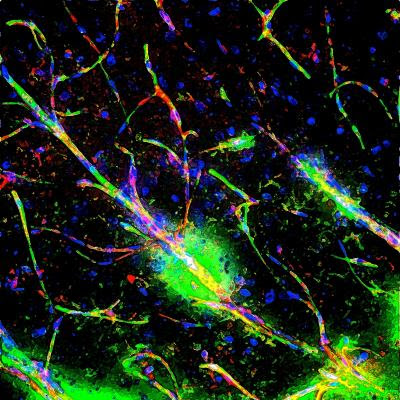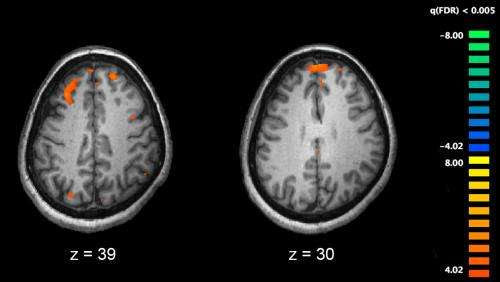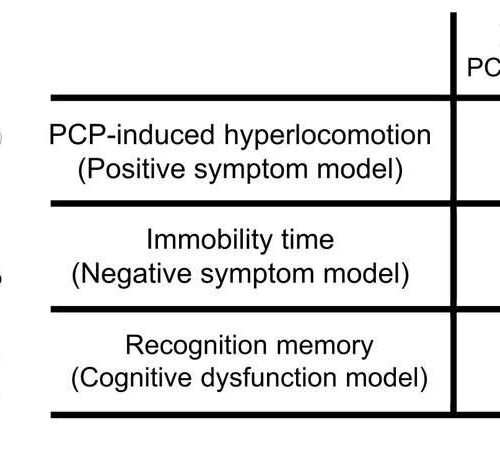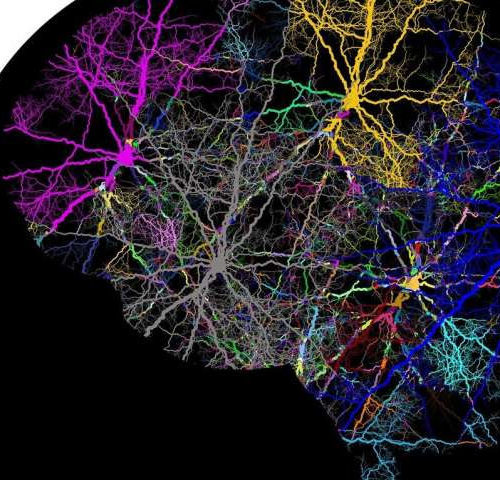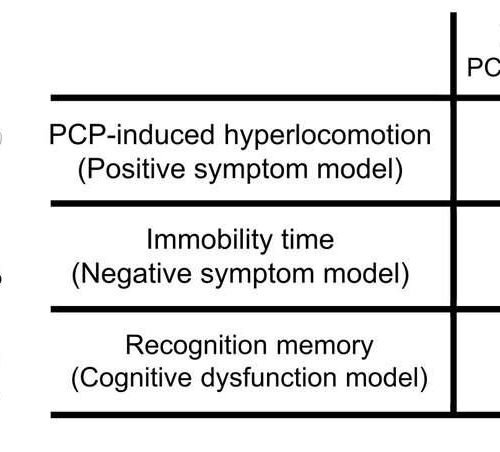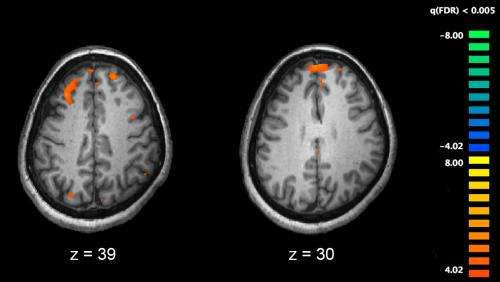UNIVERSITY OF PENNSYLVANIA IMAGE: A GENETIC CONDITION KNOWN AS 22Q.11.2 DELETION SYNDROME IS ASSOCIATED WITH AN INCREASED RISK OF SCHIZOPHRENIA. A PENN VET-LED TEAM FOUND THAT A LEAKY BLOOD-BRAIN BARRIER, ALLOWING INAPPROPRIATE IMMUNE INVOLVEMENT CREDIT: COURTESY OF JORGE IVÁN ALVAREZ Like a stern bodyguard for the central nervous sytem, the blood-brain barrier keeps out anything...
Tag: <span>Schizophrenia</span>
Reading ability severely impaired by schizophrenia
by Tim Pilgrim, Brunel University Functional magnetic resonance imaging (fMRI) and other brain imaging technologies allow for the study of differences in brain activity in people diagnosed with schizophrenia. The image shows two levels of the brain, with areas that were more active in healthy controls than in schizophrenia patients shown in orange, during an fMRI...
Schizophrenia second only to age as greatest risk factor for COVID-19 death
by NYU Langone Health Functional magnetic resonance imaging (fMRI) and other brain imaging technologies allow for the study of differences in brain activity in people diagnosed with schizophrenia. The image shows two levels of the brain, with areas that were more active in healthy controls than in schizophrenia patients shown in orange, during an fMRI study...
Increased risk of Parkinson’s disease in patients with schizophrenia
UNIVERSITY OF TURKU A new study conducted at the University of Turku, Finland, shows that patients with a schizophrenia spectrum disorder have an increased risk of Parkinson’s disease later in life. The increased risk may be due to alterations in the brain’s dopamine system caused by dopamine receptor antagonists or neurobiological effects of schizophrenia. The...
Large transporter protein linked to schizophrenia
KYOTO UNIVERSITY IMAGE: ABNORMALITIES IN THE CHOLESTEROL TRANSPORT PROTEIN ABCA13 HAVE BEEN SHOWN TO LEAD TO SCHIZOPHRENIA IN A MOUSE MODEL. CREDIT: MINDY TAKAMIYA/KYOTO UNIVERSITY ICEMS Scientists have suspected mutations in a cellular cholesterol transport protein are associated with psychiatric disorders, but have found it difficult to prove this and to pinpoint how it happens....
Low-intensity exercise during adolescence may prevent schizophreniaLow-intensity exercise during adolescence may prevent schizophrenia
by University of Tsukuba Credit: University of Tsukuba Although schizophrenia is increasingly understood as a neurodevelopmental disorder, environmental factors are known to play an important role in the disease onset and progression. But now, researchers from Japan have found that exercise during a specific postnatal period may prevent the development of behaviors associated with schizophrenia. In...
Schizophrenia may be similar to immune disorders, show scientists
by Mike Addelman, University of Manchester Credit: Pixabay/CC0 Public Domain A study by clinical scientists at the University of Manchester has shown that schizophrenia may—in some part—be caused by disordered functioning of the immune system. The first ever trial in schizophrenia of the powerful immune suppressant drug, Methotrexate, produced what the team described as ‘promising’ effects on what...
Low-intensity exercise during adolescence may prevent schizophrenia
by University of Tsukuba Credit: University of Tsukuba Although schizophrenia is increasingly understood as a neurodevelopmental disorder, environmental factors are known to play an important role in the disease onset and progression. But now, researchers from Japan have found that exercise during a specific postnatal period may prevent the development of behaviors associated with schizophrenia. In...
Study uses polygenic risk scores to determine schizophrenia risk in patients with chromosome deletion syndrome
by Children’s Hospital of Philadelphia Functional magnetic resonance imaging (fMRI) and other brain imaging technologies allow for the study of differences in brain activity in people diagnosed with schizophrenia. The image shows two levels of the brain, with areas that were more active in healthy controls than in schizophrenia patients shown in orange, during an fMRI...
GENETIC DELETION BOOSTS SCHIZOPHRENIA RISK BY 30X
Researchers have found that a common genetic deletion increases the risk of schizophrenia by 30-fold. Generating nerve cells with the deletion has showed the researchers why that is. When nerve cells aren’t busy exchanging information, they’re supposed to keep quiet. If they’re just popping off at random, like in a noisy classroom, it obscures the signals they’re supposed...

